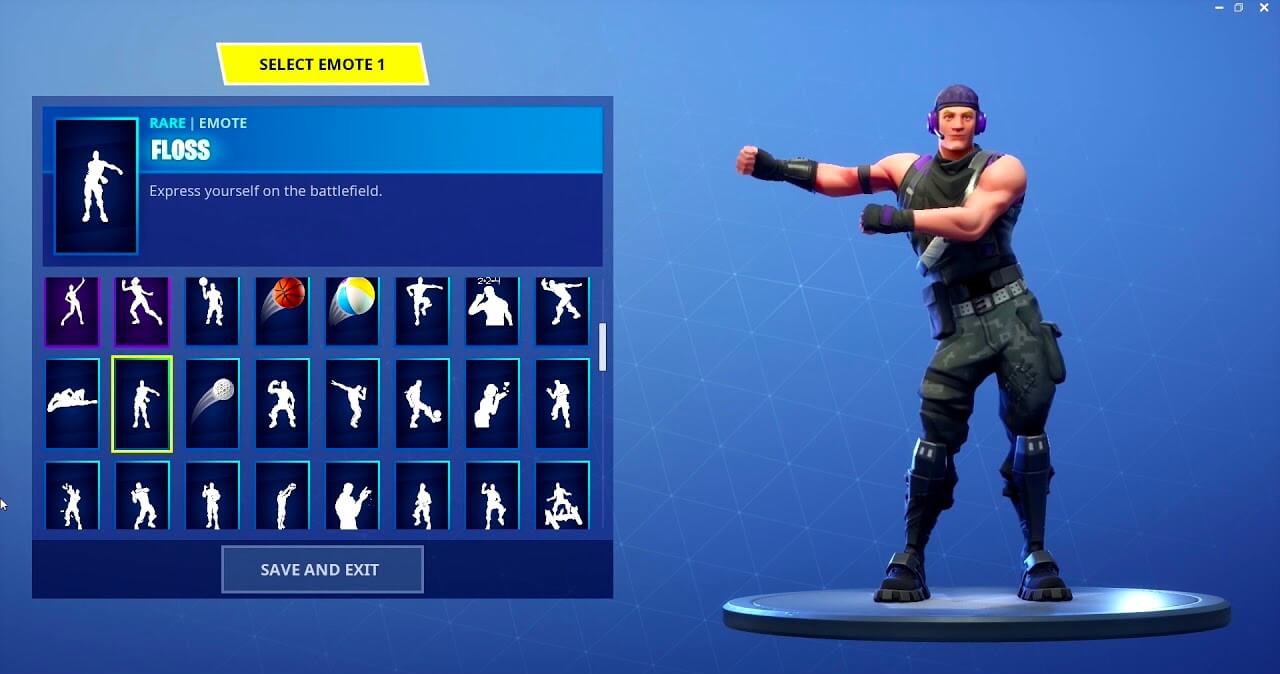In brief: Terrence Ferguson, better known as the rapper 2 Milly, has filed a copyright infringement lawsuit against Epic Games over the in-game Fortnite emote called "Swipe It." The cosmetic item is sold for about 500 V-Bucks (US $5) in the store. It is also included in the 950 V-Buck Season 5 Battle Pass.
In a federal lawsuit filed in the Central District Court of California, Ferguson argues that Epic infringed his copyright, violated his right of publicity, and practiced unfair competition under California business and professional code by copying his "Milly Rock" dance move.
"Although identical to the dance created, popularized, and demonstrated by Ferguson, Epic did not credit Ferguson nor seek his consent to use, display, reproduce, sell, or create a derivative work based upon Ferguson's Milly Rock dance or likeness," states the filing.
Ars Technica notes Ferguson is currently trying to register a copyright on the dance move with the US Copyright Office (USCO). He filed for protection only days before bringing suit. However, there is some debate about whether dance moves are even covered under copyright law.
According to the USCO, a choreographic work is defined as "rhythmic movements of one or more dancers' bodies in a defined sequence and a defined spatial environment, such as a stage," which would seem to apply to the Milly Rock. However, the requirements to qualify for copyright protection are far more stringent than it just being a few movements.

"To qualify for registration, a choreographic work or pantomime must be fixed in a tangible medium of expression in such a way that reveals the movements in sufficient detail to permit the work to be performed in a consistent and uniform manner," says the USCO's guidelines for Copyright Registration of Choreography and Pantomime.
In other words, to be a choreographic work, the moves have to be specifically defined and notable. Furthermore, just as you cannot copyright single words, you also cannot copyright single or short dance "phrases."
"Individual movements or dance steps by themselves are not copyrightable, such as the basic waltz step, the hustle step, the grapevine, or the second position in classical ballet," says the guidelines. "The U.S. Copyright Office cannot register short dance routines consisting of only a few movements or steps with minor linear or spatial variations, even if a routine is novel or distinctive."
So it would seem that Ferguson's copyright complaint and registration might be baseless under current copyright law.
His stronger claims seem to be the "misappropriation" of his identity under California business and professional statutes §17200 and civil code §3344. The lawsuit makes the allegation that Epic "digitally copied" his performance without his permission. The performance referred to is his 2014 video "Milly Rock."
"Ferguson was damaged by Defendants' conduct as he was prevented from reaping the profits of licensing his likeness to Defendants for commercial gain," the lawsuit claims.
The filing seeks an injunction on the Swipe It emote, punitive and exemplary damages, and legal expenses.
